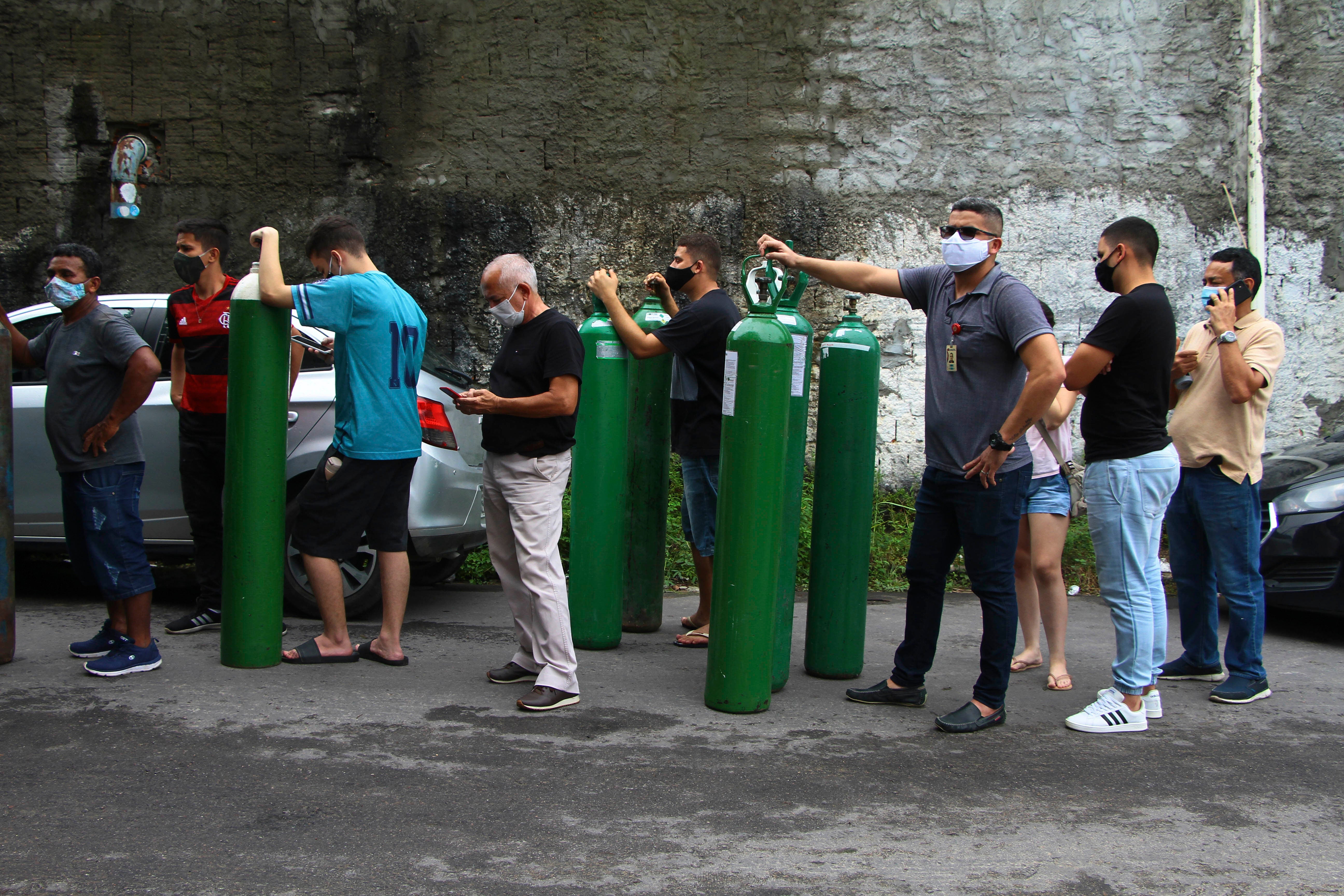Venezuela's Maduro sends oxygen to Brazil amid virus spike
Venezuelan President Nicolás Maduro has authorized the dispatch of oxygen to Brazil to help its South American neighbor treat people sickened in another coronavirus wave

Venezuelan President Nicolás Maduro has authorized the dispatch of oxygen to Brazil to help its South American neighbor treat people sickened amid another wave of the coronavirus despite frosty relations between the two governments and Venezuela's own lack of hospital supplies.
Maduro approved departure for a convoy of six tanker trucks loaded with oxygen in a national broadcast Sunday on state TV. It's destined for the city of Manaus in the northern state of Amazonas.
“Let this oxygen arrive quickly to the people of Brazil," Maduro said. “Let the people of Brazil know that to the best of our ability, we are ready to support Brazil.”
Venezuela is gripped by a deepening humanitarian crisis, which critics blame on the failed socialist policies of Maduro’s government. Tensions are high between Maduro and the right-wing government of Brazilian President Jair Bolsonaro.
Brazil’s government is one of more than 50 nations around the world that recognize opposition leader Juan Guaidó as Venezuela’s legitimate leader, rather than Maduro, who maintains control over the nation.
The health secretariat of Amazonas state said in a statement the Venezuelan government had donated the oxygen in the trucks, totaling 107,000 cubic meters (3.8 million cubic feet). That is the equivalent of about one and a half days of oxygen demand in the state capital Manaus, according to figures released last week.
White Martins, the multinational that provides oxygen to Manaus’ public hospitals, previously said it could divert some of its supply from Venezuela. It didn’t immediately comment on whether it was involved in this shipment of oxygen from Venezuela to Manaus.
A second coronavirus wave in Brazil has overflowed hospitals in Manaus, exhausting oxygen supplies. The Venezuelan trucks were expected to reach Manaus as early as Monday night, according to the Amazonas health secretariat's statement.
The city is receiving an average of four Brazil air force flights per day to bolster oxygen stocks, along with one shipment per day from the city of Belem near the mouth of the Amazon river, the statement said.
Venezuela reported its first coronavirus cases in mid-March and immediately imposed quarantine measures. Venezuelan officials report roughly 119,000 coronavirus illnesses so far and a little more than 1,000 deaths.
Experts say that the relatively low cases of coronavirus in Venezuela by comparison to Brazil and other neighboring nations is due to its isolation after years of political, economic and social crisis.
Despite Maduro's gesture, health workers in Venezuela say they struggle to meet their patients' needs in hospitals that often lack running water, basic medicine and enough doctors and nurses.
Bookmark popover
Removed from bookmarks